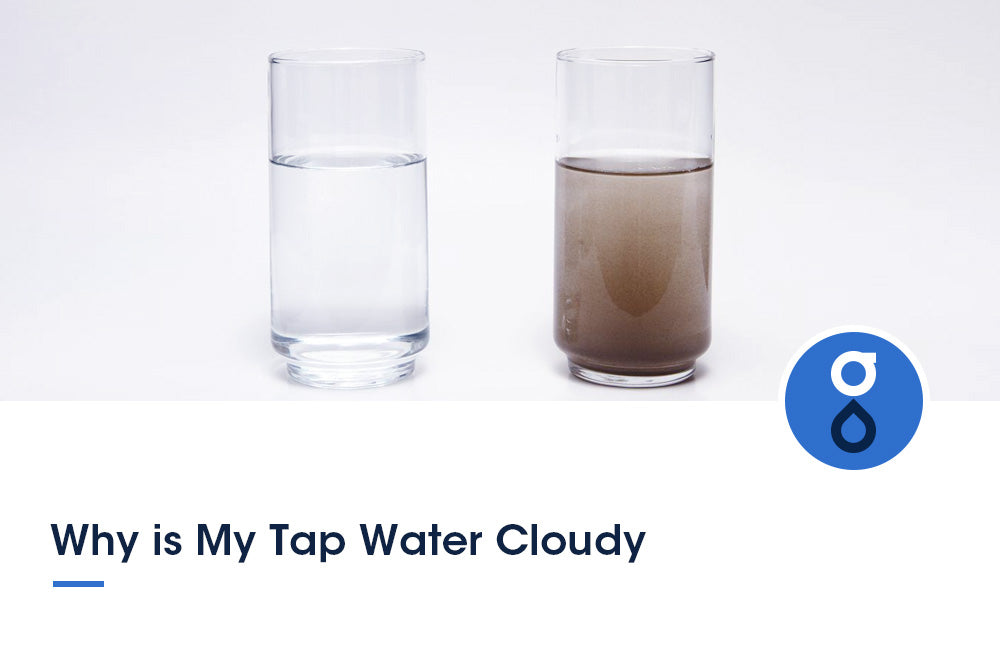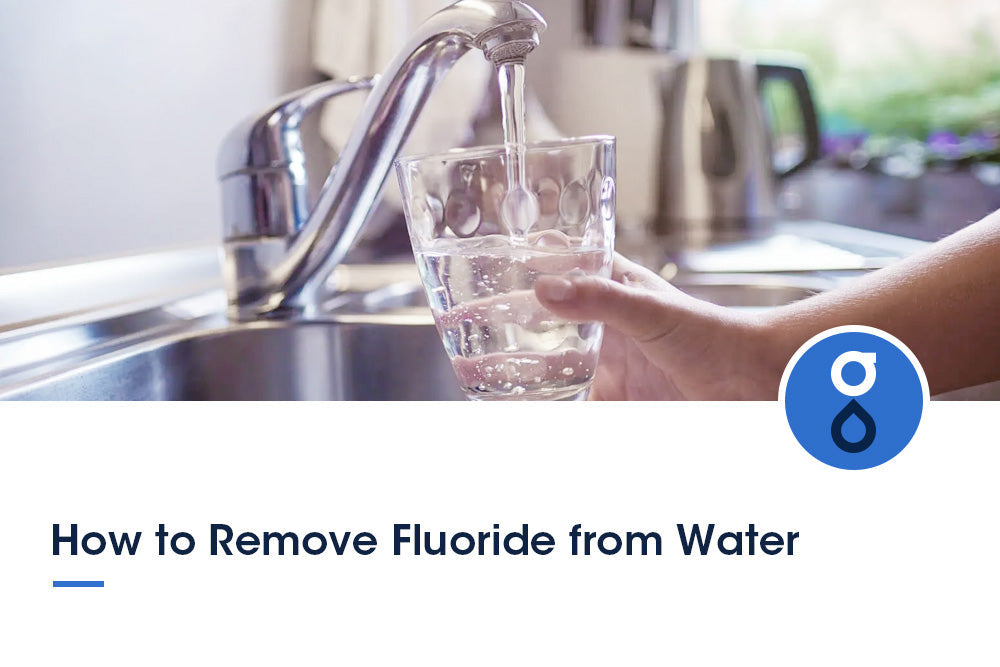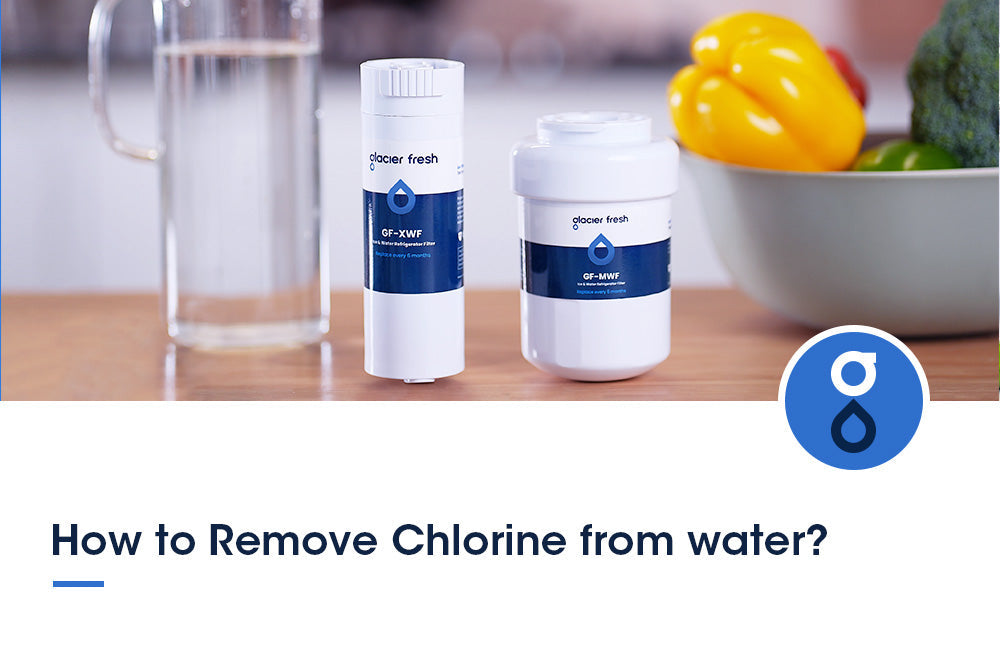Table of Contents:
What is Cloudy Tap Water
What Does Cloudy Tap Water Contain
The Significance of Consuming Clean Water for Your Health
Cloudy Tap Water: Possible Causes and Effective Solutions
Warning Signs In Your Tap Water
Measures for Preventing Cloudy Tap Water
FAQs
Conclusion
You’ve probably seen the milky or cloudy appearance of water from your tap and wondered why is my tap water cloudy? This is a frequent problem that citizens encounter, possibly due to various reasons like water hardness, microorganisms, minerals, and sediments.
Let’s look at why tap water is cloudy, how to fix cloudy tap water, and other ways to improve the situation.
What is Cloudy Tap Water?
Cloudy tap water is when your water’s color is off. It may be hazy or milky rather than transparent and clear. Some causes of cloudy tap water are air bubbles, microorganisms, sediments, etc.
What Does Cloudy Tap Water Contain?
Cloudy water may contain both harmful and beneficial ingredients. Here are the top things to expect in cloudy water from tap:
Sediments and Minerals
While often harmless to humans, minerals and sediments can alter the water’s taste, smell, and look. High levels of some minerals can result in water hardness. Examples of such are calcium and magnesium. Hard water may block water pipes through mineral buildup and soap scum formation.
Organic Matter
Cloudy tap water may also contain organic matter. As a result, it may supply nutrients to microorganisms like Salmonella and E. coli.
Nutrients and neutral pH provide excellent thriving conditions for pathogens. The disease-causing bacteria may lead to gastrointestinal issues and other health problems.
Bacteria and Viruses
Cloudy water resulting from these pathogens will likely cause you harm. The health effects depend on the type of microorganisms and their concentration. These germs lead to severe diseases like hepatitis A, cholera, and Legionnaires.
The Significance of Consuming Clean Water for Your Health
If you consume cloudy tap water for a longer time, it may cause severe health issues. Besides the disease-causing viruses and bacteria, such water may contain anti-medication organisms. For example, studies discovered antibiotic-resistant bacteria (ARB) in drinking water. ARB leads to infections that are challenging or sometimes impossible to cure.

Taking clean water lowers your disease exposure. Plus, it doesn’t compromise your body’s immunity against infections. Clean water is vital in body processes like oxygen and nutrient transportation. It helps in ensuring your body has the correct blood pressure and temperature.
Cloudy Tap Water: Possible Causes and Effective Solutions
We can’t fix a problem whose cause is unknown. So, let’s determine what’s causing cloudy tap water and what to do about it.
Cause 1: Hard Water
The water hardness depends on the degree of mineral deposits like calcium. Lots of these deposits may discolor your tap water. Natural water sources have hard water as these minerals dissolve from the ground.
There are no harmful health effects of hard water intake. So, there’s nothing to worry about if your tap water’s cloudiness is due to hardness. But it’s best to soften laundry water to lower the detergent used by two to three times.
Solution: Water Softeners
Install water softeners and sinks. Water softeners remove the magnesium and calcium deposits through mineral exchanges. This ion exchange process replaces the water-hardening minerals with sodium.
Hard water affects kitchen pipes, dishwashers, showers, and washing machines. Get full-house water softening if hard water makes your appliances less efficient.
Cause 2: Microorganisms
Bacteria and algae thrive in warm, stagnant water. In the case of untreated water, these substances may discolor your tap water. While unlikely, a study showed that algae might grow in PVC and pex pipes.
Solution: Boiling Water

- Filter the water using a coffee filter, paper towel, or clean cloth.
- Heat the contaminated water until it boils for a minute. Let it boil for three minutes if you live 6,500 feet above sea level.
- Let the water cool and store it in a clean container.
Seek professional testing if you suspect the presence of harmful substances. Address the issue with an appropriate solution once you get results.
Cause 3: Sediments and Minerals
Components like calcium carbonate, manganese, and iron may cause cloudy tap water. These substances may enter your water from corroded pipes or the surrounding soil.
Solution: Filtration Systems

Different filtration systems can address cloudy tap water. The deposits in your water determine which filtration system is best for you. Some standard filtration systems are:

Cause 4: Air Bubbles
High pressure in pipes may cause air bubbles, clouding the water. That’s because excessive pressure enhances air solubility, causing bubble formation.
Solution: Wait for Minutes
A fizzy or cloudy water appearance due to air bubbles is harmless. It dissipates with time. Allow the water to rest for a while, and the bubbles will disappear.
Cause 5: Pipe Corrosion
Pipes may break down with time, releasing sediments into the water. These sediments may be the cause of your water’s discoloration.
Solution: Professional Plumbing Services

Are you constantly experiencing cloudy tap water? Get a water treatment specialist or a professional plumber to assess the cause. The professional may test your water. They may also assess the plumbing system for corrosion, clogs, and similar issues.
Warning Signs In Your Tap Water
Cloudy tap water isn’t the only thing to worry about when it comes to drinking water. So, when should you test your water’s quality?
- Cloudiness or murkiness: As seen, cloudy water may contain bacteria, minerals, and microorganisms. Test your water for contaminants if it’s cloudy.
- Strange smell: Contaminants and bacteria may give the water a metallic or musty smell. Bleach-like and chlorine water may suggest excess disinfectant, necessitating reduction.
- Discoloration: Rust and minerals may turn the water’s color into brown, red, or yellow. Discolored water can arise from plumbing issues and corroded pipes. Any color other than clear and transparent requires attendance.
- Unpleasant taste: Metallic, chemical, or other tastes could imply contamination. Test your water for causes.
- Low water pressure: Sudden pressure reduction may arise from plumbing issues like leaks.
Measures for Preventing Tap Water
Here are some measures to help you use tap water efficiently:
- Flushing the pipes: Periodic flushes can remove sediments that may discolor water. To flush your pipes, turn on your taps. Leave them on till the water is clear.
- Avoiding hot water usage: sediments and minerals settle out of water during cooling. Hence, hot water use may cause cloudy water. Don’t use hot water for drinking and cooking. Instead, leave it cold and heat it as needed.
- Education on water safety: Educating your household can help reduce cloudy tap water. Teach the children not to drink water from taps. Know the possible contamination sources in your area.
- Annual water quality testing: These tests can determine issues before they escalate. Test for minerals and any other contaminants in your water.
- Regular maintenance of pipes and fixtures: Well-maintained plumbing systems prevent leaks and corrosion. These issues may cause cloudy water. Inspect fixtures and pipes for defects and replace or repair them as needed.
FAQs
How Long Can Cloudy Water Last?
Cloudy water lasts a few minutes to two days, depending on the cause. Cloudiness from bubbles disappears in minutes.
In the case of a bacterial bloom in an aquarium, the cloudy water may last 1-2 days. The cloudiness arises from quick bacterial buildup to cope with high organic waste.
Does Cold Water Get Cloudy?
Yes, cold water does get cloudy sometimes. Water temperature rises in cold months as it moves from the reservoir to the taps.
Cold water contains more air than warm water. Since some of the dissolved air escapes, it creates bubbles. These may lead to cloudy tap water.
Conclusion
Cloudy tap water can result from hard water, air bubbles, corroded pipes, microorganisms, sediments, and minerals. Some solutions to cloudy tap water include boiling, using water softeners, and filtration systems.
We advise you to seek professional assistance if the issue keeps returning since it may be a sign of a bigger issue. A water quality expert or a professional plumber will help you get to the root cause of the issue. Follow Glacier Fresh to find more water filtration solutions.
















